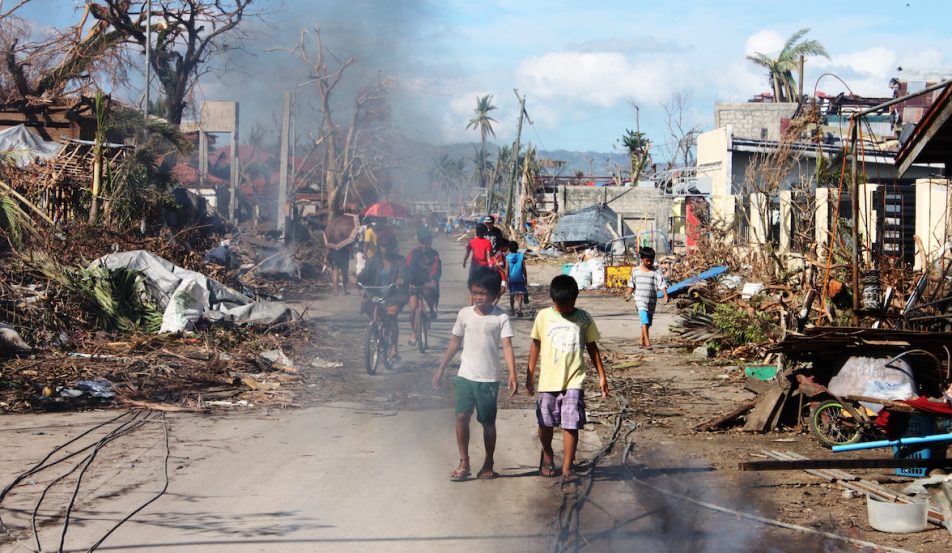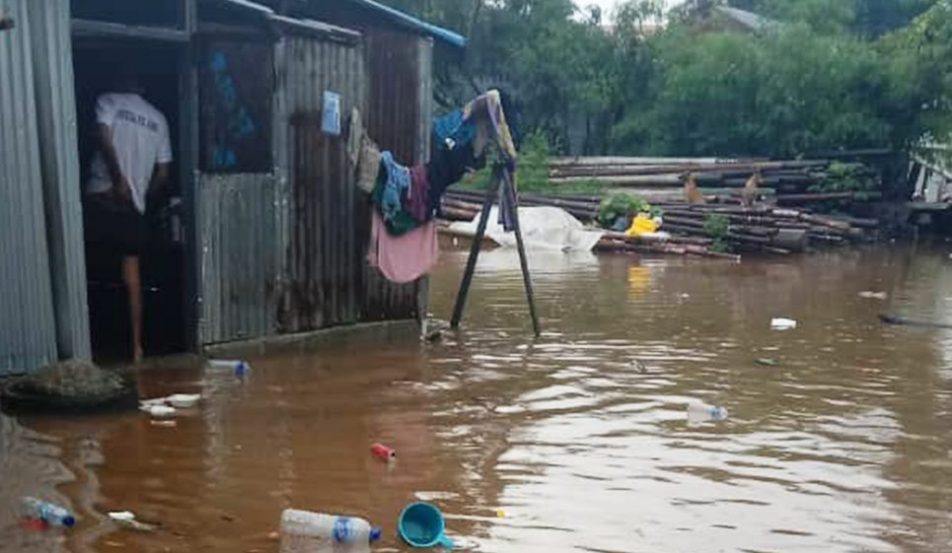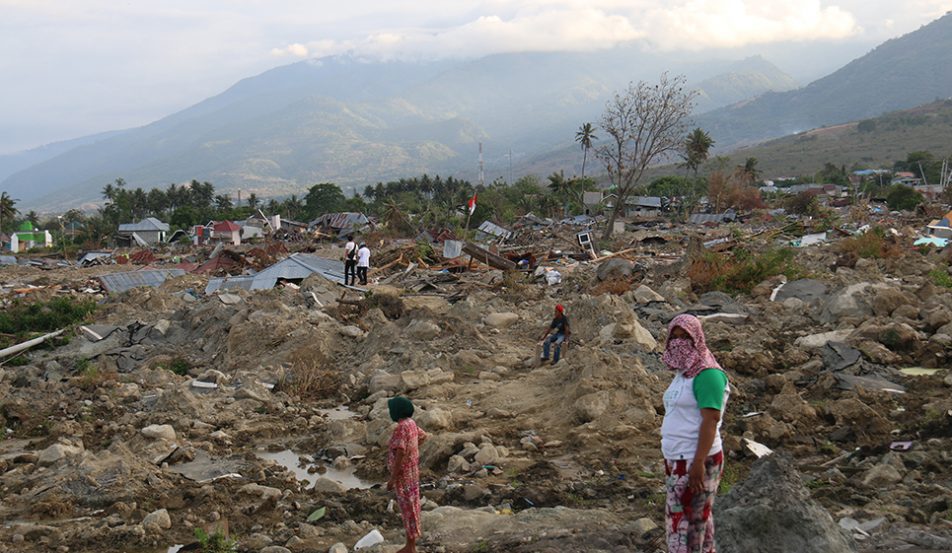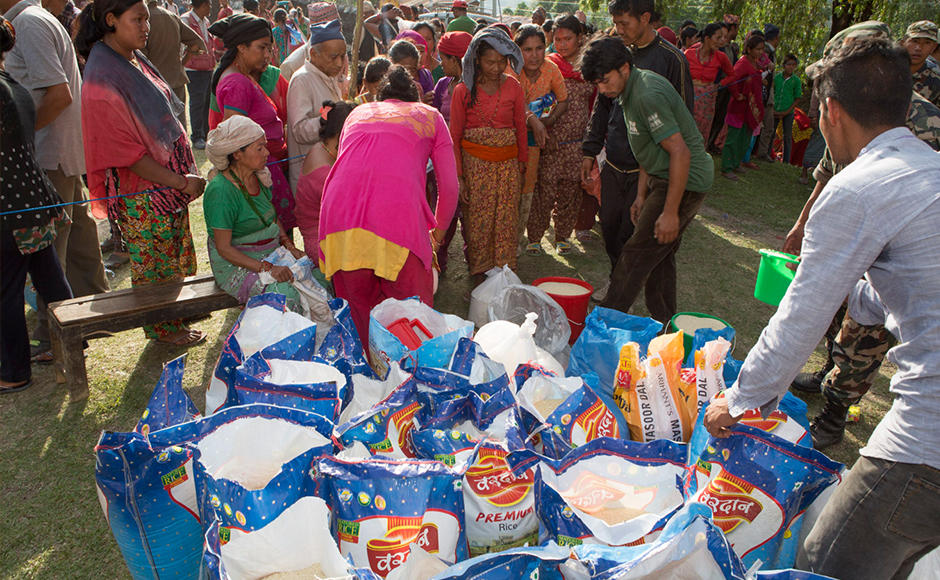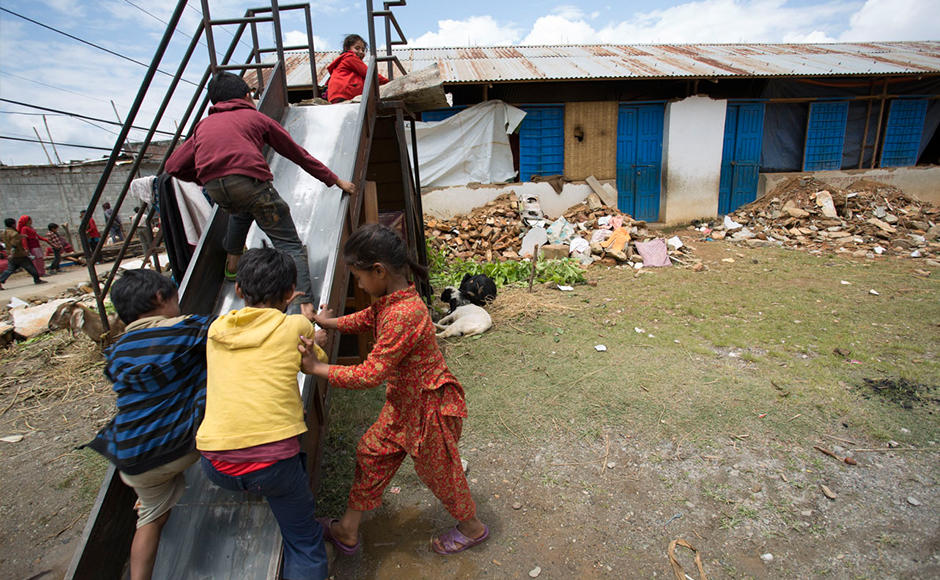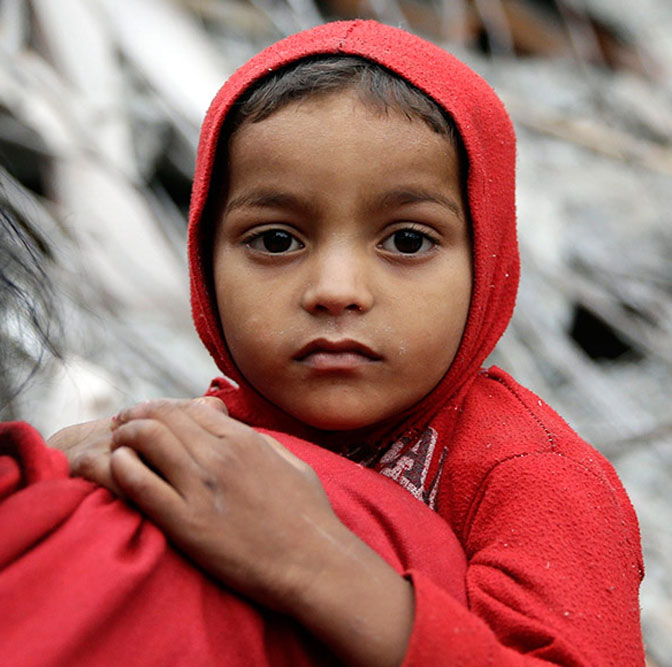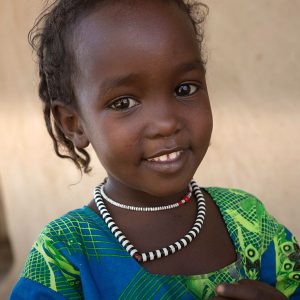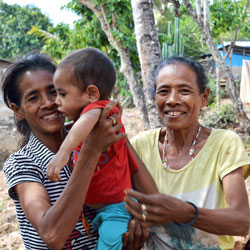Providing emergency food supplies
Within a week of the first quake hitting Nepal, ChildFund was the first organisation to deliver urgently need food supplies to children and families in four remote villages in Sindhupalchok. Over 45,000kg of essential food items €“ rice, dhal (lentils) and salt €“ were distributed to 3,179 families, benefitting more than 12,000 people.
ChildFund is currently providing a second food distribution for 2,800 families who are running low on food. Based on UN recommendations, each family will receive 30kg rice, 4kg dhal, 1kg salt and 2 litres of cooking oil, which will support their dietary needs for 19 days. Some families whose homes have been destroyed will also receive tarps, ahead of the monsoonal rains due at the end of the month.
Establishing child-centred spaces
ChildFund is in the process of setting up seven child-centred spaces (CCS), safe refuges where children can play, learn and receive trauma support. The locations of the centres have been specifically planned so no child will have to walk more than 15 minutes to reach one. The first CCS will be operational before the end of May and all seven CCSs will be up and running by the first week of June.
Child protection is at the centre of ChildFund`s emergency response programs because children become more vulnerable during emergencies. Children in Sindhupalchok need access to proper care and support so they can begin to recover from this disaster.
11-year-old Sanju (pictured above) says: “I`m just feeling hurt right now because people close to me were killed in the earthquake. There were three friends I know who died. One of them was my cousin, her name was Anesca. She was a very good friend.”
Creating temporary learning shelters
With over 28,000 classrooms destroyed and another 12,000 damaged, Nepal`s Department of Education has requested assistance in the setting up of temporary learning centres to ensure children can return to their studies as soon as possible.
ChildFund is preparing to help set up 52 temporary learning shelters in Sindhupalchok and another 14 shelters in Ramechhap. In partnership with UNICEF, ChildFund has access to free educational, recreational and early childhood development kits to use at the shelters.
ChildFund Australia CEO Nigel Spence says: “Our primary concern is for the safety and wellbeing of children affected by this terrible disaster. While it is reassuring that aid is getting through, huge challenges remain and it will be a long road to recovery for these children and their families. We thank everyone who is continuing to support the relief effort in Nepal.”
Credit: Jake Lyell/ChildFund



